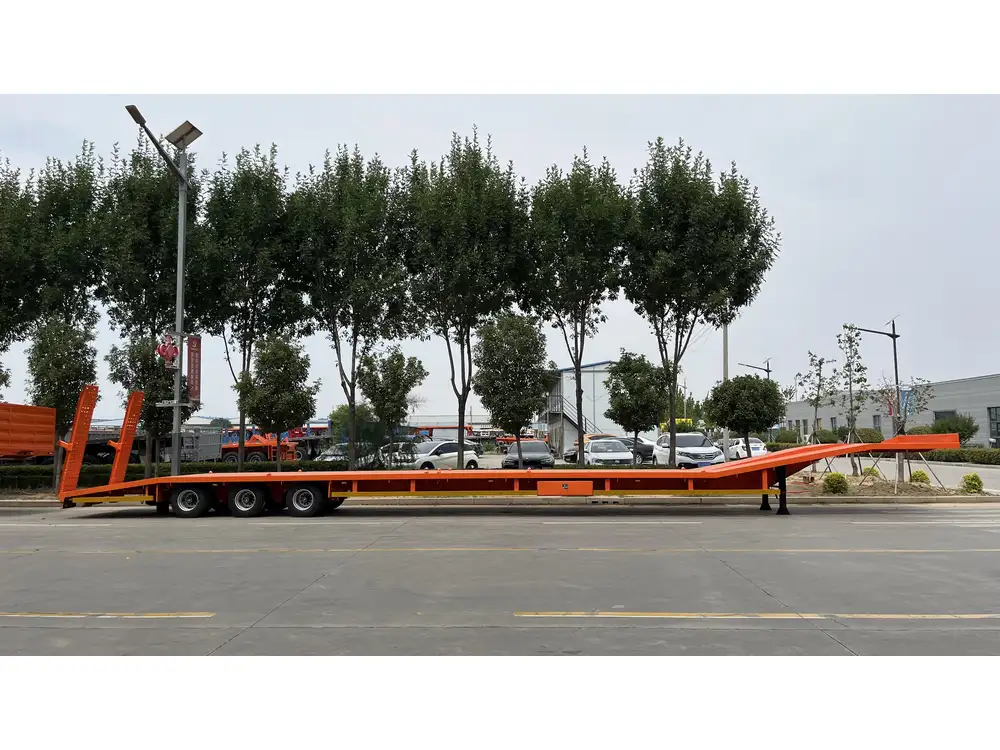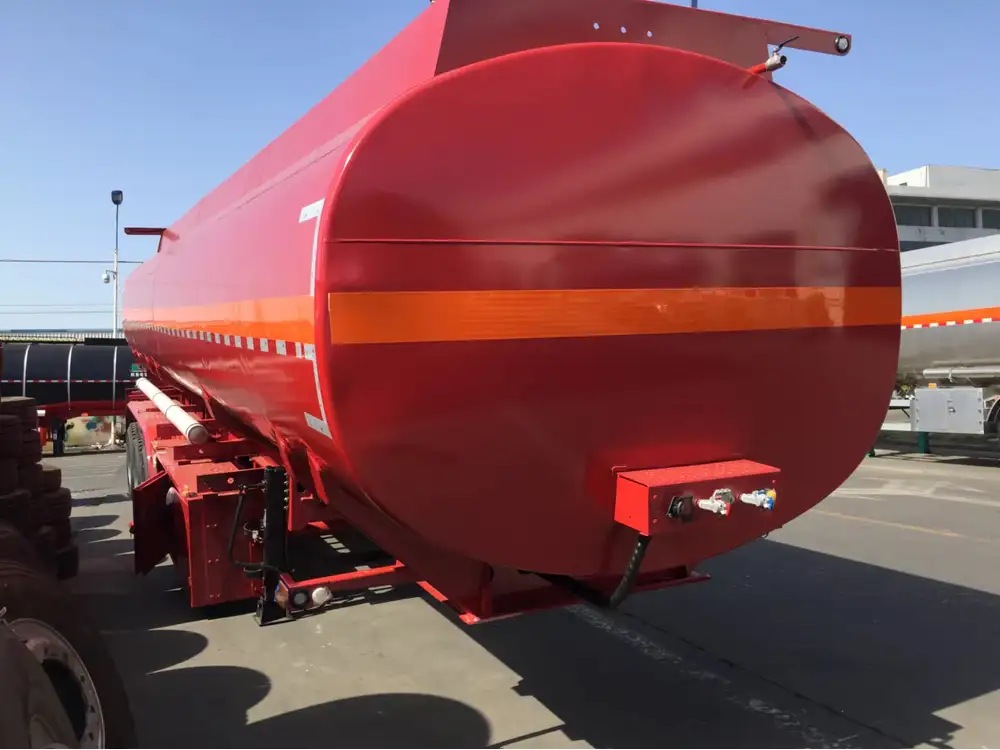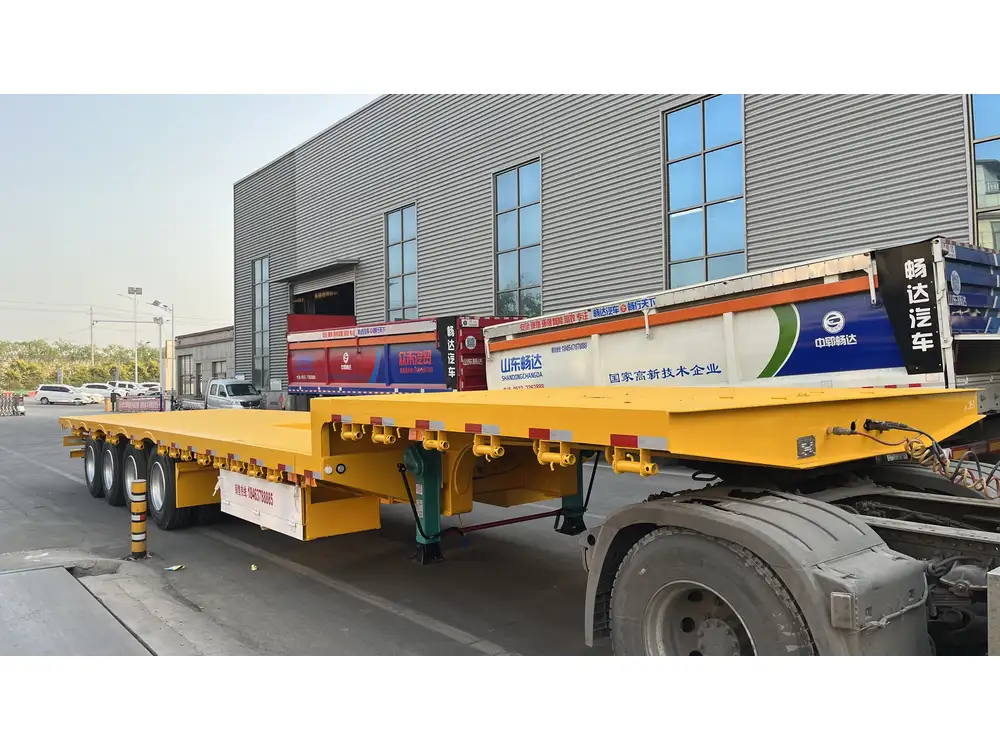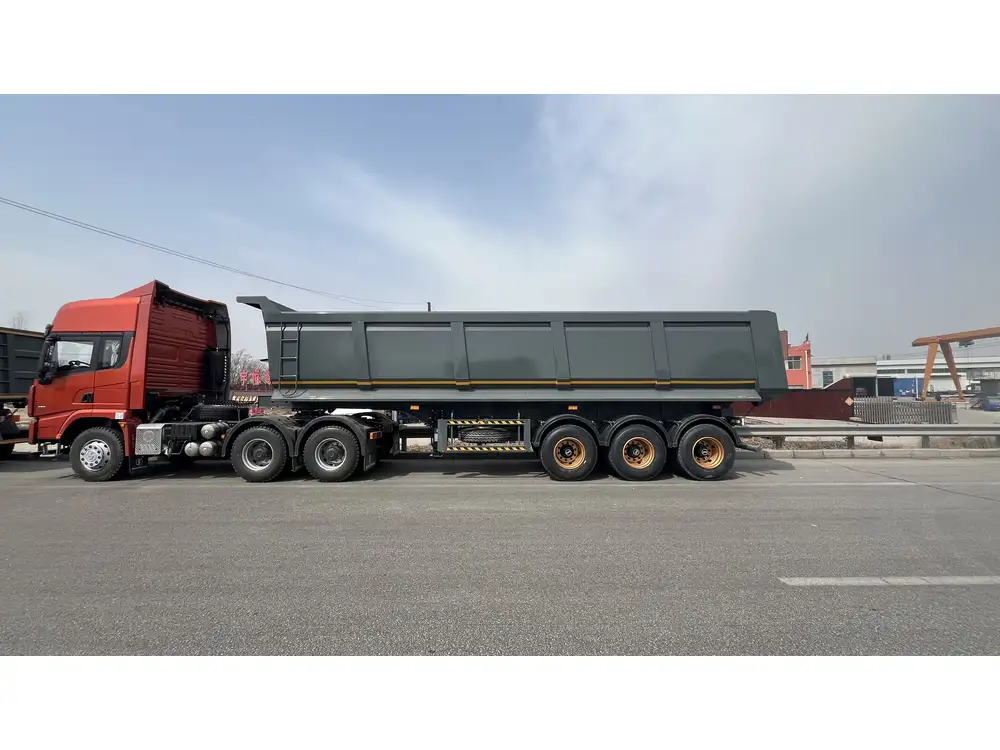Understanding the weight of an empty 53-foot semi-trailer is essential for logistics, safety, and compliance with regulations. In the transportation industry, knowing the weight of your equipment can save time, reduce costs, and enhance operational efficiency. This article will delve deep into the specifics of 53-foot semi-trailer weights, their construction, factors affecting weight, and the implications of trailer weight in freight transport.
The Standard Weight of an Empty 53′ Semi-Trailer
On average, an empty 53′ semi-trailer weighs between 10,000 to 15,500 pounds (4,536 to 7,034 kg). The variation in this weight largely depends on the trailer’s construction materials, design specifications, and the manufacturer. Below, we break down the common types of trailers in this category and their average weights:
| Type of 53′ Semi-Trailer | Average Empty Weight |
|---|---|
| Standard Dry Van | 10,000 – 12,000 lbs |
| Refrigerated (Reefer) | 12,500 – 14,500 lbs |
| Flatbed | 12,000 – 15,500 lbs |
| Tanker | 11,000 – 14,000 lbs |
| Specialty Trailers | Varies, 10,000+ lbs |
Understanding Trailer Structures
The weight of a semi-trailer is influenced by several structural components. Key design elements include:
- Frame Material: Steel, aluminum, and composite materials offer different strength-to-weight ratios. Aluminum trailers tend to be lighter yet more expensive.
- Axle Configuration: The number of axles affects structural integrity and weight distribution. Most 53′ trailers have either two or three axles.
- Type of Flooring: Wood, composite, or aluminum flooring will contribute differently to the overall weight.
- Insulation and Refrigeration Equipment: For refrigerated trailers, the insulation and cooling systems add additional weight.
Factors such as the choice of components directly impact the trailer’s weight and, consequently, its payload capacity.

Why Does Trailer Weight Matter?
1. Payload Capacity
The weight of an empty semi-trailer affects the amount of cargo it can legally carry. The maximum gross vehicle weight (GVW) allowed on U.S. highways is typically 80,000 pounds, including the weight of the truck, trailer, and cargo. Therefore, understanding your empty trailer weight helps in calculating the payload capacity.
Formula for Payload Capacity: [ \text{Payload Capacity} = \text{Maximum GVW} – \text{Truck Weight} – \text{Trailer Weight} ]
2. Fuel Efficiency
A heavier trailer will often mean more fuel consumption when loaded. Calculating the total weight being transported enables companies to strategize routes and fuel costs more effectively.

3. Compliance with Regulations
Every state has regulations regarding weight limits, not only for the entire vehicle but also for each axle. Weighing your semi-trailer empty can help ensure compliance, avoiding costly fines or road-side inspections.
| State | Max Weight Limit (lbs) | Notes |
|---|---|---|
| California | 80,000 | Includes truck and trailer weight |
| Texas | 80,000 | Overweight permits available |
| Florida | 80,000 | Heavy haul not exceeding 95,000 lbs |
| New York | 80,000 | Check for axle weight limits |
4. Safety Concerns
Understanding the weight of your semi-trailer is crucial for safe loading practices. Overloading can pose safety risks for the driver and other road users, leading to accidents or vehicle damage.
The Implications of Trailer Weight on Operations

Freight Transport Efficiency
Businesses must balance trailer weight with freight transport efficiency. The following factors come into play:
- Loading Strategies: Knowing your trailer weight helps in planning how to load for optimal distribution. This can prevent overloading one side or axle of the trailer.
- Planning Shipping Routes: Heavier trailers may necessitate different routes that can accommodate their weight.
- Cost Management: Weight influences fuel costs; understanding trailer weight can lead to cost savings in logistics.
Maintenance and Repair Considerations
Trailers that are too heavy may experience more significant wear and tear. Regular inspections and maintenance can help mitigate issues arising from both structural strain and road conditions.
Variations in Weight by Manufacturer
Different manufacturers produce semi-trailers that may vary significantly in weight despite similar dimensions. Here are some factors to consider when comparing manufacturers:
- Material Innovations: Some manufacturers use composite materials that can reduce weight without sacrificing strength.
- Design Features: Some designs may include features that enhance aerodynamics, thus impacting the overall weight.
- Customizations: Certain manufacturers offer customizations that add weight but may offer functionality necessary for specific loads.

FAQs About 53′ Semi-Trailers
How do I determine the weight of my 53′ semi-trailer?
The simplest way to determine the weight is to use a certified scale at a weigh station. This will give you an accurate weight that accounts for various configurations you may not consider.
Are all 53′ trailers the same weight?
No, they vary widely based on design, materials, and intended use. Standard dry vans weigh differently compared to refrigerated models, for instance.

How can I increase my payload capacity?
To increase your payload capacity, consider reducing the weight of the trailer through selecting lighter materials, removing unnecessary features, or ensuring optimally distributed loads.
What is the difference between net weight and gross weight?
- Net Weight: This refers solely to the weight of the trailer itself, without any cargo.
- Gross Weight: This is the combined weight of the trailer, cargo, and the truck.
Conclusion
In the logistics and transportation industry, understanding how much an empty 53′ semi-trailer weighs is more than just a number; it informs decisions that affect operational efficiency, compliance, and safety on the highways. By keeping the trailer’s weight in mind when planning loads and routes, companies can optimize their freight operations and potentially save on costs. If you’re in the market for a trailer, be sure to explore various models, sounds out various manufacturers, and consult with industry experts to find the best fit for your needs.
As the competitive landscape of the freight industry continues to evolve, staying informed on the intricacies of semi-trailer weights will forge a path toward enhanced operational success and sustainability.



